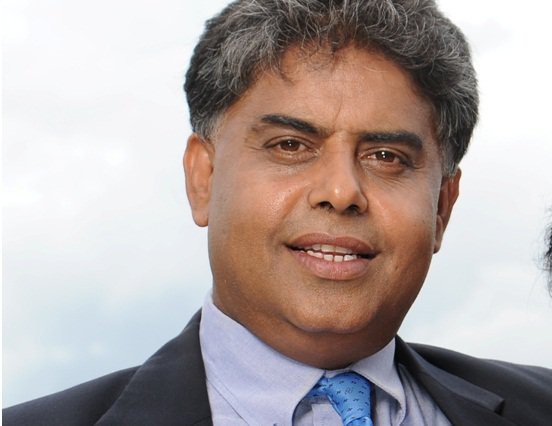
As a lawyer, specialized in the investment sector, how do you see the state of investors now?
All the investors are facing challenges and difficulties due to the lockdown and spread of COVID-19. However, the hotel and tourism-related industries are suffering the most. They are not only losing billions of rupees but also facing a tough stand of laborers who are seeking a full salary of this period. If the government does not handle this situation with care, Nepal’s hotel industry will badly suffer sending bad messages for investors around the world.
How do you interpret the recent government notice published in Nepal Gazette asking employers to pay two months’ salary to employees?
It was a very unfortunate decision of the government. Such decisions will cause harm in the short and long term. At a time when all hotels and restaurants are empty and income has gone to zero, how can an employer pay the full salary to employees where such close down my go for many months? Even the Labor Act has special provisions to cope with such unpredictable disasters. The Act spells out the way to maintain a harmonious relationship between employers and employees. As employers and employees are two wheels of any industry, both of them equally suffer whenever such situations arise. As an investor, the employer has to take an enormous burden, including payment of interest of the lending banks, operational costs like electricity, water, maintenance, and so on. Notice published in Gazette by the government ignoring the investor's critical financial situation during this pandemic, the decision has shaken the relations between employees and employers.
Why is the decision unjustifiable?
As all of us know, following the nationwide lockdown and closure of international flights and national borders, the movement of the people has completely come to a standstill. This means the income of the hotels and restaurants also goes down to zero. In this condition, the unilateral decision of the government will further complicate the situation. How can an employer pay full salary to employees when everything has gone down to zero and with empty rooms in the hotel and table in a restaurant? However, the employer has to incur a minimum amount to pay the bill of electricity, water, maintenance, security and others for daily maintenance of premises. Till the operation of hotels begins, investors have to incur all minimum costs.

The government said that they issued the notice after the hoteliers were adamant about salary. What do you say?
It is a complete lie from the concerned officials. At a time hoteliers and employees wherein a dialogue/negotiation to find out adjustments between them in regard to payment of salaries, the unilateral decision announced by the government broke the negotiations. Hoteliers have already offered minimum and reasonable wages for the workers given as per their own financial capacity. Hoteliers are searching a way out to support their employees for a long period of time as the hotel is not going to come into operation for a minimum of another six months.
Had Hotel Association Nepal contacted the government regarding the issue?
Hotel Association Nepal wrote several letters to the government of Nepal requesting them to come out with a financial recovery package to support the tourism sector, including the hotel industry. For the last three months, the government has not responded to such letters. Had the government come through the recovery package, hoteliers would have considered the problem differently. Instead of responding to HAN’s letter, the government unilaterally published a notice in Gazette on 26 April instructing hoteliers to pay full salary to their employees. Following the publication of the unilateral notice, hoteliers are shocked.
What is the implication of this notice?
This notice has placed the hoteliers, who have been facing a very critical situation, of survival, in a very difficult position. How can a hotelier pay the full salary in a condition where they don’t have any income? At a time when there is no possibility of bringing internal and external tourists due to pandemic, all the investment in the hotels is in high risk and survival has become a critical concern for them.
What has resulted from the notice issued by the government?
The unilateral notice has intensified the conflicts between employers and employees. Following the notice, employees have already demanded the salary with employers. However, they are not in a position to pay a salary from the month of Baisakh due to empty rooms. Before the decision, the employers had proposed to pay a full salary of the month of Chaitra and 12.5 percent salary and service charge for the entire period until the hotels come to operation. Hotel Association Nepal, an umbrella organization of hotels in Nepal, agreed on the proposal.
What legal step is HAN taking now?
Following an intense discussion, a meeting was held on 9 May, in which, all hoteliers endorsed three alternatives. The first alternative is whether it is possible to pay a salary as demanded or not? If it is not possible what alternatives do they have? As per clause 15 of the Labor Act, hoteliers can issue a layoff notice in case they cannot meet the demand for labor. Under this clause, hoteliers can lay them off providing 50 percent of their salary. Under this clause, there will continue to be the relations between employees and employers. The second option is retrenchment under clause 145. By using this clause, hoteliers can issue a month-long notice to laborers, relieving them of work and suspending the operation. Under this clause, the relations between the employees and employers can terminate. Under the third option, the company can go for voluntary dissolution. Despite all these three options available, the hoteliers do not wish to pursue any of these options but rather would like to come to an amicable solution to the problem by which both employer and employee can survive to a minimum until the hotel comes into full operation. If both parties fail to reach such a solution, the hoteliers have no other choice, but to pursue any one of these options mentioned above.
What are the differences between the three options?
The first and second options are just related to the suspension of operations. However, the third, dissolution, is a complete closure like Narayani Hotel, Blue Star Hotel and Sherpa Hotel. With this option, the legal existence of such a hotel would come into an end. All three hotels went to dissolution due to the Maoist insurgency.
What is the legal stand of HAN?
HAN is now not pursuing any of the three. They are pursuing negotiations to settle the issue looking at the long term interest of both the hotel industry and employee. Despite such a legal way, HAN is proposing a way out where employees and employers both can share the burden of the natural crisis. Thus they are pursuing negotiations. HAN has already proposed professional solutions among the government, employees and employers. Now the issues are not only concerned of hoteliers and employees, but it is also concerned with the government as well. These problems need to be sorted out on a tripartite basis. Hoteliers want certain relief packages from the government, certain sacrifices from employees and are ready to bear a certain burden to save the industry.
How do you look at the stand of the three parties in dispute?
Government and employees are proposing and looking at a short-term gain. However, hoteliers and investors are considering a long-term solution. Given the current situation, hoteliers are considering at least a year to begin the revival of the hotel industry. In this serious situation, the government has not shown any serious consideration. However, another day, Ministry of Labor had held a tripartite meeting between Minister of Labor, leader of National Trade Union and FNCCI and HAN representatives where it was agreed on that a working committee, consisting of representatives from government, labor and employers, which will look into these issues and come up with an amicable solution to the problems. We do not know whether such a committee would succeed.
But the Minister for Tourism and Civil Aviation only talks about the salary of laborers and the difficulties, and less about the challenges faced by investors, who invested huge amounts of money to generate employment,and they look to be nobody’s interest. First of all, the issues of salary and labor issues fall under the jurisdiction of the Labor Ministry. Thus Tourism Minister should not be encroaching other jurisdictions. Even if he expressed his view, the government must show concern of both parties, not only of labor.
If the government shows concerns only about labor, this will kill the hotel industry.
Hoteliers will have no option other than to follow the dissolution provision. Given the current difficulties faced by the tourism industry, governments in India and Bangladesh have announced big relief packages to save the hotel industry. Although Nepal’s hotel industry generates the largest number of jobs, it is yet to receive any attention.
Ministers argue that hoteliers also make huge profits over the years and they have to allocate some profit to protect employees. How do you look at this?
Putting huge money in risk, investors might have made some profits. However, they also share their profit with employees giving them a salary, gratuity and provident fund and another welfare scheme as per the law. Thus running of the hotel industry benefits both the employers and employees, not only the employers.
How has it affected the industrial relations?
As the COVID-19 situation has drastically changed business and income of the hotels and restaurants after March 24, industrialists have started discussions with the employees on how to move ahead in the financial plight following the outbreak of coronavirus. As employers and employees are in the process of negotiations over how to tackle the situation, financially sharing the burden by both, Nepal government abruptly published a notice in the Gazette asking the hoteliers to pay the full salary of Chaitra and Baisakh to the employees has brought ambiguity and confusion between labor and employee. The government's such a step would help ruin the sound industrial relationship between employers and employees. The government must be balanced and sensible in handling labor-employer relationship issues.
If things do not get settled properly, what will be the implications?
It will not only ruin Nepal’s tourism sector but it will entirely ruin Nepal’s banking and economic sectors and would cause to lose employment opportunity. If the hotel remains closed for a long time, it has the effect of losing thousand of employment in the industry. As you know, the hotel industry is the largest foreign currency earner and the largest employment generating industry in Nepal. The hotel industry requires legal and financial support. The government must bring economic packages to save the entire sector for the future.
How is the way forward to resolve this COVID created industry related issue?
A tripartite meeting between Labor Ministry, employer and labor is the most and they must come up with an amicable solution taking into account the domestic and international impact this COVID 19 has brought into. Thus, the government must come up with a viable financial package that will address the issue of making industry survive and supporting labor to receive minimum remuneration to support daily living. The government must be ready to create a job retention scheme fund which would have to be addressed the issue of remuneration to be paid to labor during this period of total lockdown.
- The Situation Pushes Women Journalists To Speak Louder, Experts Emphasize
- Jun 30, 2025
- SPI NEPAL: Prosperity Through Clean Energy
- Jun 30, 2025
- PM Oli Meets Spanish Prime Minister
- Jun 30, 2025
- FM Dr. Rana Said Nepal recognises constitutional guarantees to citizens' right to food
- Jun 30, 2025
- Weather Forecast: Generally Cloudy With Heavy Rainfall Is Likely In One Or Two Places Of Kathamandu, Biratnagar And Pokhara
- Jun 30, 2025















